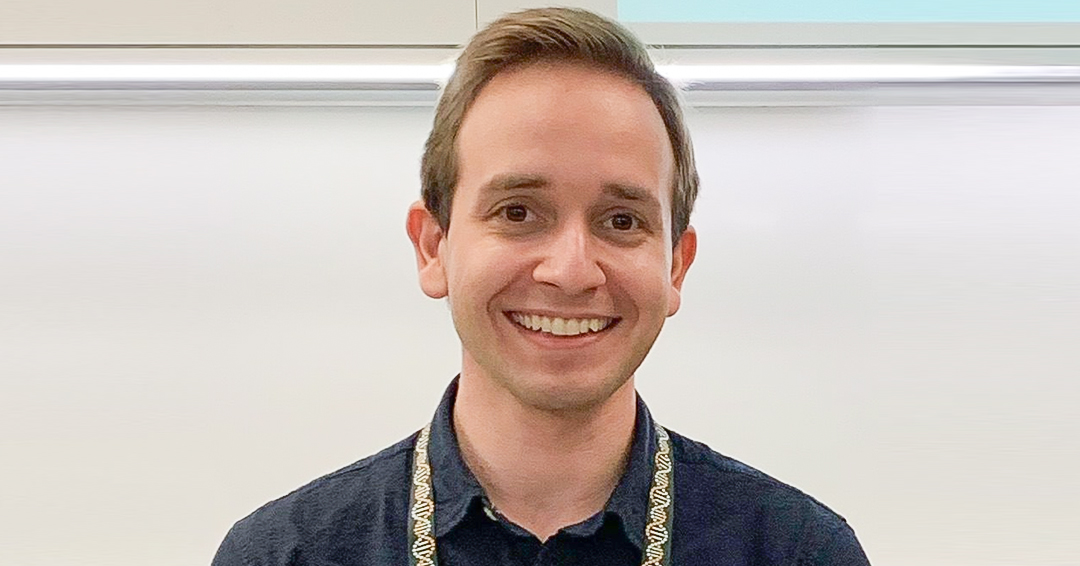
McGill University PhD candidate Michael Shamash’s efforts to find a novel way to alleviate recurrent child malnutrition have been rewarded with a three-year Canada Graduate Scholarship to Honour Nelson Mandela valued at $105,000, issued by the Canadian Institutes of Health Research. The awards, which were initiated 10 years ago by Canada’s federal government, seek to recognize high-calibre graduate students conducting research in areas that Mandela championed during his lifetime, including children’s health.
Shamash’s research in the lab of Corinne Maurice, PhD, Assistant Professor in the Department of Microbiology and Immunology, intends to show how applying fecal virome transplants can restore healthy gut microbiome development, and thus significantly reduce the instances of malnutrition in early childhood.
“I’m excited the project is making progress, which is good to see,” says Shamash. “I’m focusing on the FVTs, the fecal viral transplants, and whether they could be effective. We hope we can demonstrate, as part of the experiments and the research we’re doing, that FVT might be a new therapy that could be opportune to use in early life.”
The project has set up a child cohort with collaborators at a research institute in Dhaka, Bangladesh, providing access to gut microbiome samples from healthy and stunted children. “Our collaborators are instrumental with a lot of the sample collection and processing occurring in Dhaka, and additional sample analysis occurring at our lab in Montreal at McGill,” Shamash notes.
Shamash began researching the gut microbiome in 2020, focusing on early childhood (neonatal to two years) because malnutrition is best treated from the outset. “There are a few reasons to investigate early in life, especially the first two or three years of life for human infants, because that’s where the gut microbiome is really the most dynamic, changing all over the place, in terms of the bacteria that live there and what they’re doing,” he explains. “And of course, the child is also changing their diet during that period from usually a milk or formula diet to a solid food diet. Because of all these changes, it’s a great time frame to intervene before the microbiome stabilizes, usually around three years of age. We think we could perhaps intervene and shape it or reshape it if it looks like it is headed in the wrong direction, as is often seen in the context of malnutrition, or if there are pathogens present.”
Findings from previous lab work published in 2020 show that in the context of malnutrition and stunting, there are significant differences in gut bacteria and bacteriophages, the viruses that target these bacteria in children. The team has already developed a humanized mouse model of intergenerational early life malnutrition. “We’re working with animal models where we can manipulate things much easier and quicker,” explains Shamash. “We’re making this intergenerational, since in humans, stunted parents are likely to produce stunted offspring. And we’re just completing now the validation of this model in mice where we can study the neonatal mice, or pups, early on in their development before their microbiome develops.”
From there, Shamash will proceed with FVTs from healthy donors to malnourished neonatal mice and evaluate their effects on restoring microbiome development and animal growth. At present, FMTs (fecal microbiota transplants) are being used in the clinic to treat gastrointestinal infections such as C. difficile. “Instead of FMT, we’re doing FVT, where we’re taking away all of the bacteria and other large cells and debris from the material and focusing on that viral fraction that’s there, where we’re administering this essentially purified viral fraction of a fecal sample to mice,” Shamash notes.
FMT has been successful for a variety of health conditions and FVT has also been shown to help in certain contexts and conditions. “Now we’re moving that into mice to see if we can get the same effect, but also combining it with diet interventions, since we know that the diet therapy helps in the short term,” he says. “There’s something else that might be needed to push the microbiome along its trajectory of healthy or normal development. By targeting the microbiome specifically with these bacteriophages, we’re hoping that we can rescue the microbiome’s development in the context of malnutrition. Ultimately, we hope that the proposed novel bacteriophage-based therapy, combined with existing dietary interventions, will improve health outcomes for the almost 200 million children worldwide suffering from malnutrition.”
Learn more about the Canada Graduate Scholarship to Honour Nelson Mandela
